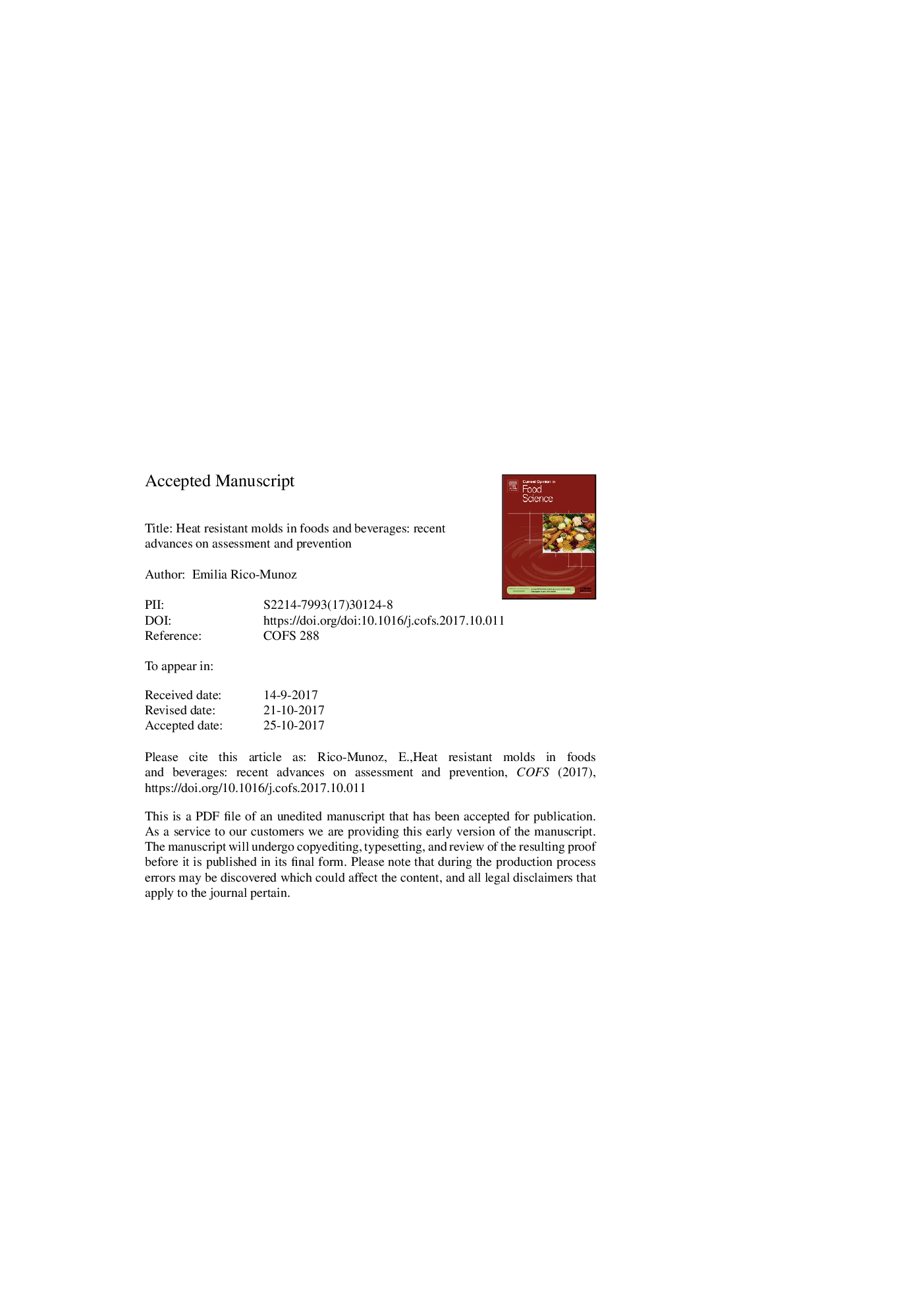| Article ID | Journal | Published Year | Pages | File Type |
|---|---|---|---|---|
| 8409255 | Current Opinion in Food Science | 2017 | 34 Pages |
Abstract
Spoilage of thermally processed products by heat-resistant molds (HRM) is a widespread problem for food and beverage industries. These molds can survive not only the temperatures applied during pasteurization but also the high pressure used during high-pressure processing (HPP), causing numerous incidents of spoilage and significant economic losses. The ability of HRM to survive these treatments is due to the formation of highly heat-resistant and pressure-resistant spores called ascospores. Ascospores are widely distributed in the soil, particularly in cultivated soils in which fruits and vegetables are grown. They have been isolated from ingredients, packaging and the processing environment. Prevention of spoilage of heat-processed products by HRM would require reduction or elimination of soil contamination and ascospores from the ingredients, packaging and processing environment. The suppliers of the ingredients and packaging as well as the beverage manufacturers must have programs in place to reduce contamination of these products by HRM ascospores. This review provides an insight into the recent advances on the assessment of HRM contamination and spoilage prevention and highlights the need for further research in this field.
Related Topics
Life Sciences
Agricultural and Biological Sciences
Food Science
Authors
Emilia Rico-Munoz,
